I was in a stranger’s house and just about to leave when the host’s friend looked me straight into the eyes and said: “I shot and killed three policemen. I sat in jail for eight years and was sentenced to death.”
I froze. My eyes widened! Did I hear that right?
He repeated himself. I did hear that right.
I stayed calm, looking into the mans honest, dark eyes, trying to understand. His name was Joel. He was homeless. He had just come by while I was chatting to Ana and her uncle.
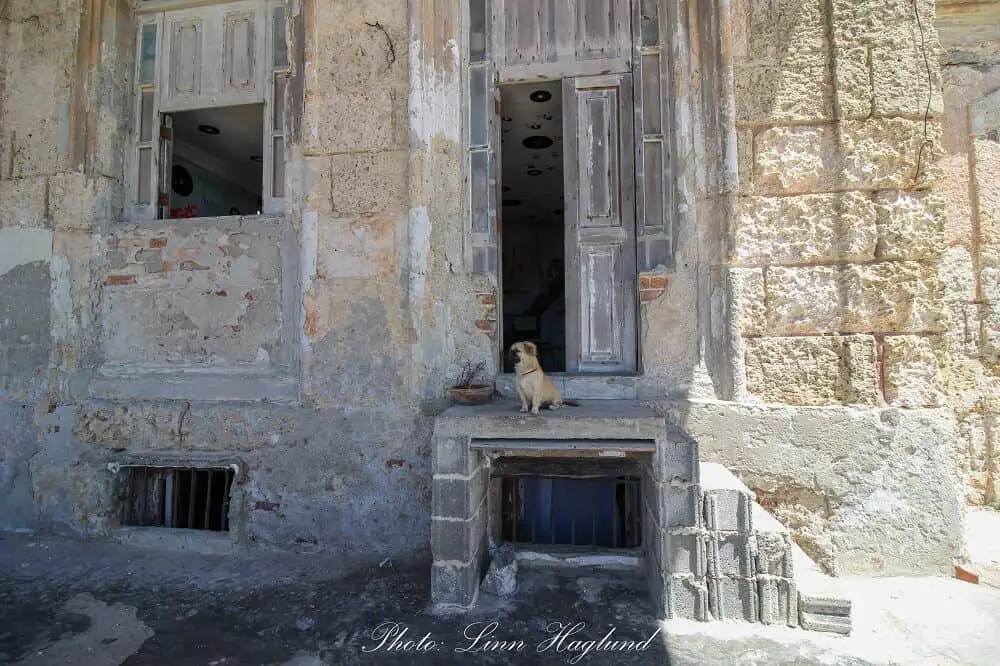
Invited in a stranger’s home to learn about the real Cuba
Ana is a single mom of a boy of 10 who lives in central Havana.
Earlier in the morning, I was invited to her house to learn more about the real Cuba. From people that don’t work for the government, “because those people are brainwashed,” said her uncle. “They say what they are told to say. They are too scared to talk against the government.”
I remembered the taxi driver from the airport who talked only fine words about his country. He explained how he drove a government-owned taxi and therefore he got a fixed monthly salary. With private owned taxis I would be able to bargain on the price, he had added. They were responsible for their own income.
Ana and her uncle explained to me how average wages range between 15 and 25 dollars a month. How all Cubans get some rice, beans, coffee, sugar and cooking oil once a month. But the food only lasts a few days.
The money they get also only last a few days. Prices in Cuba are high. Both for tourists and for locals. People need food, clothes and hygiene products. They also need to pay for electricity, gas, and water.
Later on my trip, I learned that some people can earn up to 30 dollars a month. However, I also spoke with a girl that claimed she had an income of 11 dollars a month.
According to The Trading Economist, average wages in Cuba for 2018 were 777 CUP. The change is about 24 CUP to one dollar/CUC. This makes the average wage of 32.37 dollars a month.
I refer to dollars in this post, as they are about the same as the convertible Cuban currency CUC. Dollars are easier to relate to for most people.
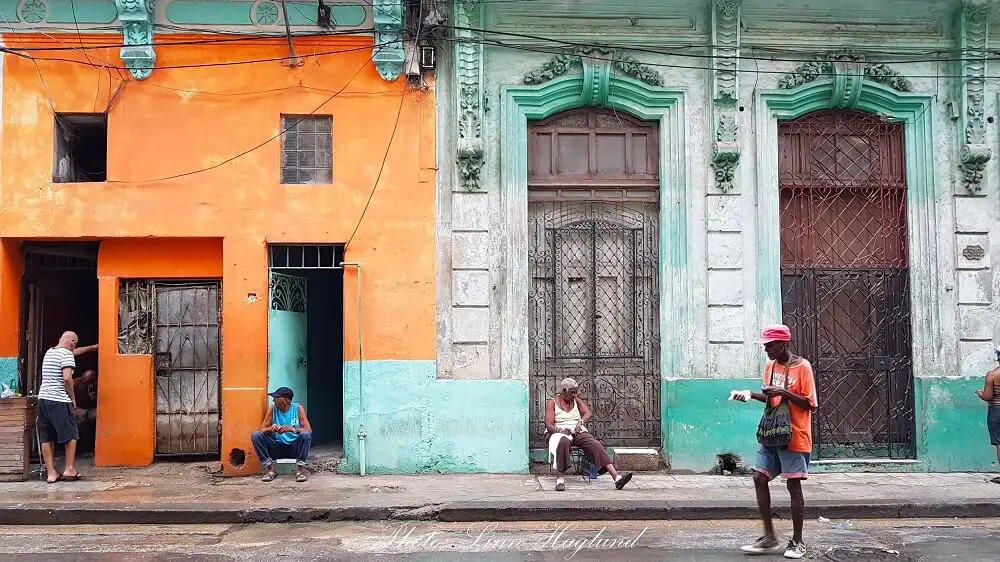
The tourism business is king – or is it?
I asked about the owners of Casas Particulares (private room rentals usually in peoples homes) and the owners of the expensively shiny vintage cars cruising around Havana. How could they afford to buy such nice cars or to fix up those nice houses if the wages were so low?
These businesses were definitely the best way of making money in Cuba.
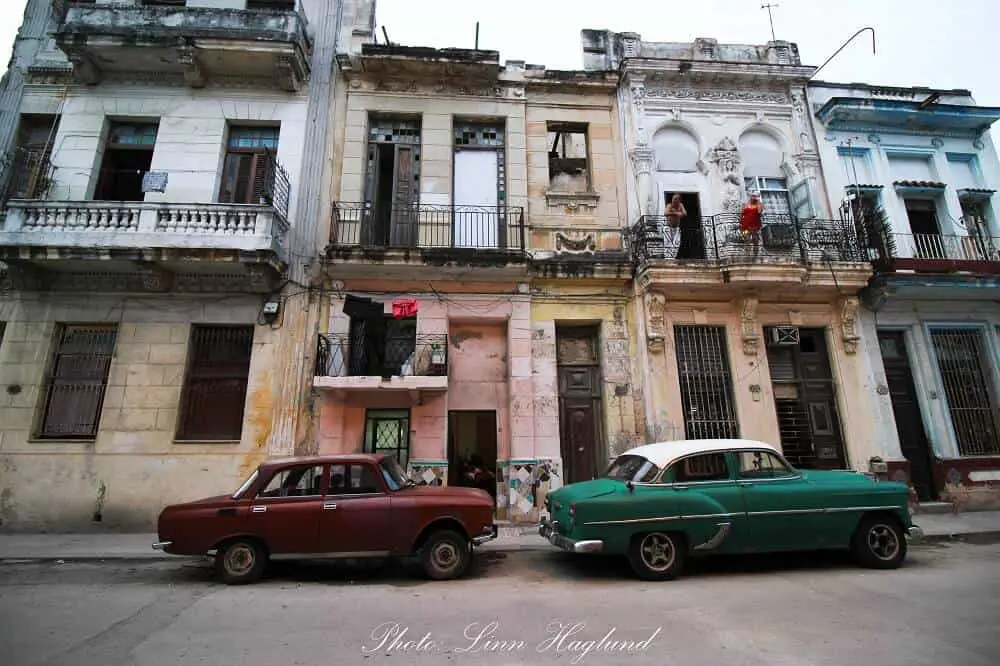
Vintage cars
Anas uncle explained that no one could afford to buy those cars. They were cars that had been in their families for years and that they now took advantage of to earn money. Otherwise, they had family abroad that had sent money so they could buy a car or improve their house so they could rent out rooms.
No Cubans could afford either without economical help. However, they too had to pay extremely high licenses to work with tourists. He said it was not easy to be in those businesses even though they were the best-paid jobs a Cuban could have.
“So the drivers of the fancy, colorful vintage cars don’t have much money?” I asked. “No, they struggle as we do. But they have an advantage. They were lucky to have a grandfather with a car. And they have had the opportunity to maintain it so they can drive tourists around. But they have to pay almost everything they earn to the government. They always control you.”
Later, I talked to several private taxi owners that confirmed that they have to pay a large license fee each month. On top of that, they have to pay a percentage of their earnings.
I didn’t get any answers from any of the owners of the vintage cars cruising around Havana. The driver of the one I drove with didn’t want to talk much about this at all, so I chose not to ask too much. What he did say, was that the car he drove used to belong to his grandfather and he had been lucky to use it.
On my way to Topes de Collantes National Park, more than a week after I was sitting in Ana’s living room, I got a ride with an extremely friendly and talkative taxi driver. His name was Fran. He was the first-ever Cuban to admit to me that he was well off with money.
Fran had traveled to Angola several years ago and worked there for two years. He had saved up a large amount of money.
“But why did you come back to Cuba?” I asked. “This is the reason why,” he said proudly and showed me a photo on his key ring. It was a gorgeous little girl dressed up in a beautiful dress.
“She is the reason why I came back to Cuba. My girlfriend at the time became pregnant and Amaia came to the world. I had saved up enough money to buy this car, and now I live well here in Cuba. I can give my daughter a good life with what I have saved up and what I can earn by driving my own car.”
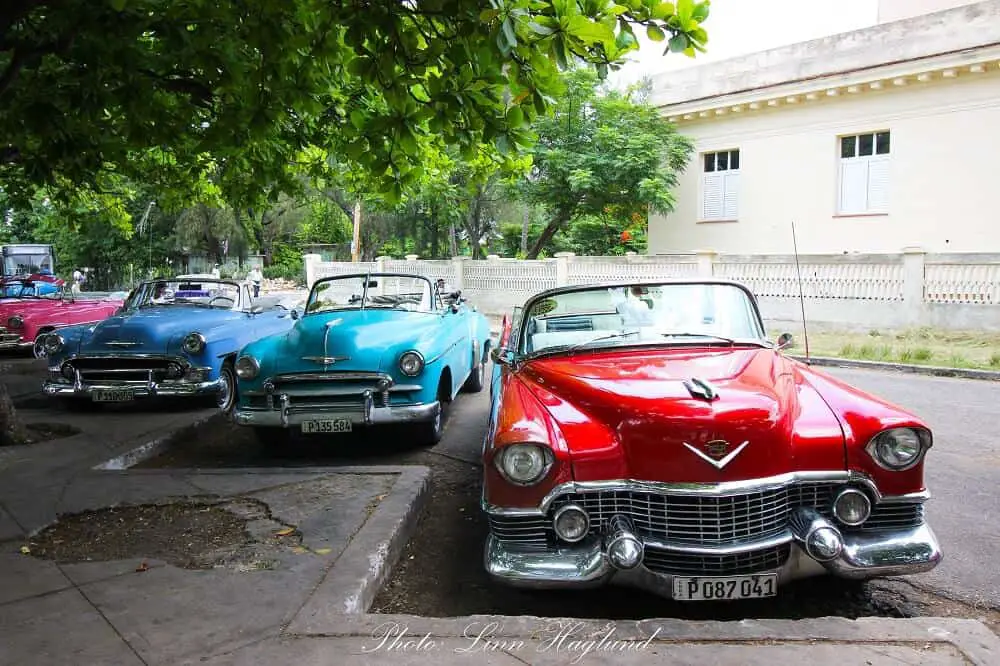
Casas Particulares
The owners of the Casas Particulares I stayed with, on the other hand, were all extremely open in their communication and shared their struggles with me. Apparently, they have to pay a license fee each month that depends on how many rooms they have for rent. The amounts I was told varied between 150 and 400 dollars a month.
On top of that, they pay 10% taxes each month. That is not too bad, is it? Wait, they are not done yet. Once a year they have to do the taxes according to how much business they have had. Among the ones that admitted what they had to pay a year, mentioned amounts like 50% to 65% of the last year’s earnings.
On top of that, I was told by several hosts that they have to report into a government office each time a tourist come to stay.
So, when they had registered my passport information and I had signed the papers, they had to make a call to inform that I was staying there and for how many nights. Randomly, they would get a control visit to make sure they didn’t host any unregistered tourists.
It is hard to find accurate information about the taxes they have to pay. Even the Casa owners didn’t really understand the system when I asked them to explain it better to me.
“I have a friend that works in the bank. Once a year, I give her all the papers and she sorts it all out for me. I don’t understand anything of it,” said one of the Casa owners.
Ok, NOW I understood what Anas uncle was talking about. The government even controlled me when I was traveling around. In one way it felt safe, but in another way, after witnessing all these stories I am not sure what I thought about it.
Accounting Play also did a similar questioning and came out with similar results. Even Anywhere supports the information I collected from altogether five different Casa owners.
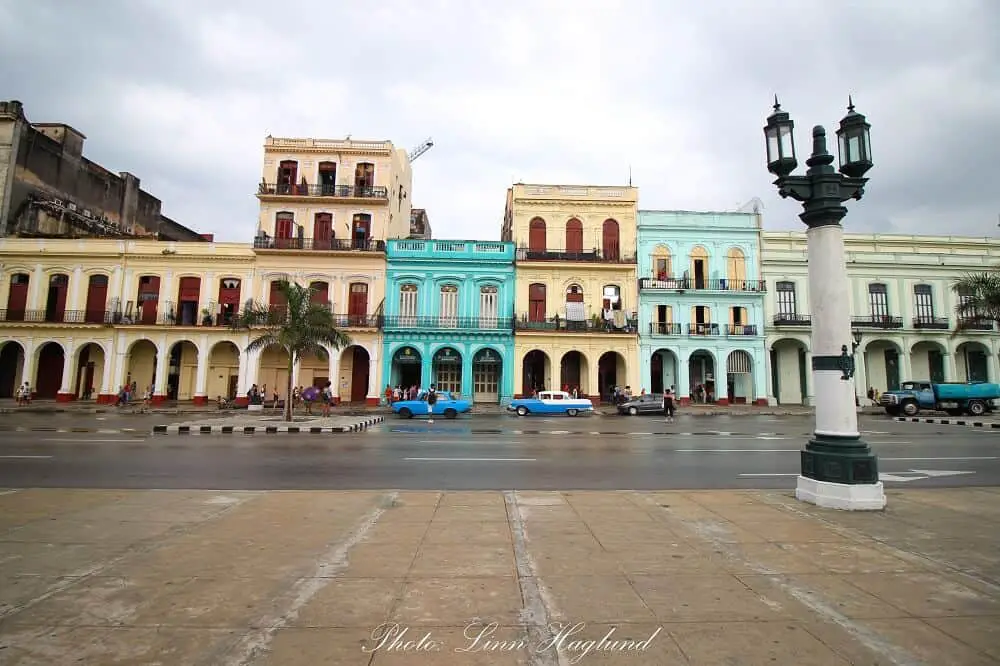
Clothes in Cuba
Anas uncle was sewing a button to the bottom of his flip flop to repair it as we spoke. It was broken. New flip flops would cost him at least 10 dollars. He explained to me how it had to be a small button that entered in the little hole where the plastic bit had once been beneath the flip flop.
“This button is too big. It will break again soon, but Ana doesn’t have any smaller buttons.”
“Clothes are expensive,” he continued. “And the quality is very bad.” He looked at my newly bought, shiny black Havaianas and asked how much they had cost me. Embarrassed for the quality flip flops I was wearing, I told him they cost something like 20 dollars.
I was not sure about the currency difference between euros and dollars and knew it would be more than that. I had bought them just before I left because the puppy I was looking after the last weeks before my trip had eaten up the last two pairs I had. I left that detail out.
Disconcerted, I explained that you could get cheaper ones, but these were good quality and I wouldn’t have to buy new ones for ten years. My last Havaianas did last for ten years, and this is my honest reason for buying them again.
I still don’t know how much flip flops really cost in Cuba, but I do know that every single person I asked what tourists should bring to Cuba for the locals said, among other things, clothes.
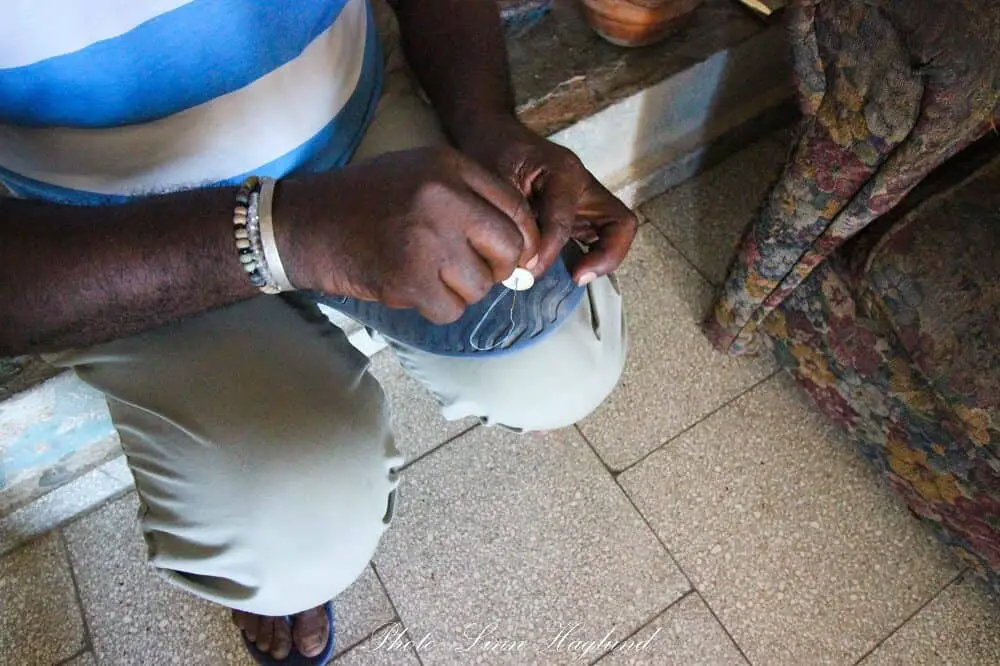
How the government controls the Cuban people
Ana is lucky, she doesn’t pay any rent. The house is paid off. But the government want to build a hotel there, so they want to move all the people that live in the building to a different part of Havana. And then she will need to start to pay off the new house that she doesn’t want to move to.
“The government does that,” she explains, “they can do anything. If I have to pay for five years to pay off my house, but I die before I have finished, then my son has to pay. But he has to start from scratch. As if I haven’t paid anything. And normally it isn’t only five years. It’s always more. You have to pay until the government is happy.”
They explained to me how the government in Cuba chooses itself. No ordinary Cubans have a vote.
“The real Cuba is hard,” she continued. “You can never say anything against the government. They always know what you do and what you say.”
“But how?” I asked.
“They have people everywhere,” Anas uncle answered. I looked at him. Confused. He explained how random people in the neighborhoods are selected as vigilantes for the government. They are obliged to report everything they hear and see. “If you become chosen as a vigilant for the government you become a dog. You have to lie to everyone you love. Your family, your friends, your neighbors. You have to give them what they want. You are like a dog for the government. You are worth nothing.”
I was thinking about Ayla. My dog. She is worth all the love in the world. I couldn’t make myself compare this to a dog. Maybe I could compare it to the bugs crawling inside the sofa Ana was sitting in. It was hard to even imagine how low a person must feel in such a situation.
I later asked other Cubans about the government’s vigilantes. Obviously, I only asked people I got a good relationship with and that were willing to talk about the real Cuba and the people’s struggles.
Three other people confirmed Anas uncles information. Two of them even added that the vigilantes often would disappear after the government had gotten the information they wanted. They would be killed.
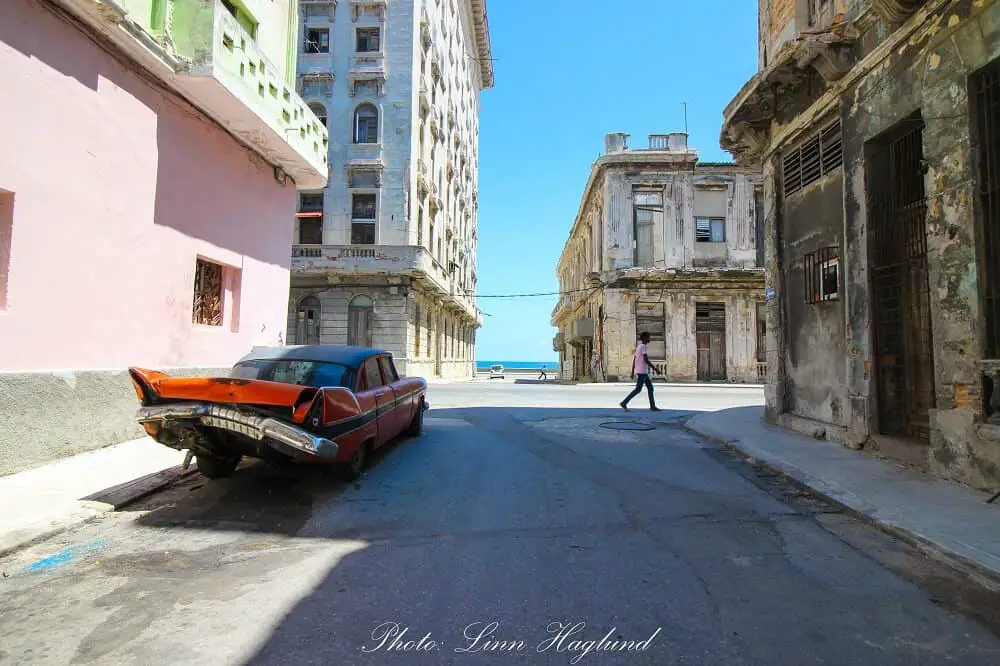
Check out this Cuba itinerary for responsible travelers
Sharing is caring
Joel walked in as if he lived there while I was talking to Ana and her uncle. He settled down next to Ana in the dirty, bug-infested sofa.
I had been given their finest seat, an old wooden chair with rusty metal legs. And I was so tremendously thankful for that! I was sure there were fifteen million bugs of all kinds inside that sofa. Usually, I am not worried about things like that, but that sofa was excessively filthy with a big, black hole in the middle where I imagined all the bugs were hiding out.
Anas uncle probably read my face as I was about to politely sit down on it as he said, “Please sit down on this chair instead!” Relieved, I thanked him just a moment before my butt would have landed in that messy bug haven.
My shorts were saved from being thrown in the bin on my return to the Casa I stayed at. My butt was even more thankful because the Casa actually had problems with the water and I would probably not be able to have a proper de-bugging shower!
I can only imagine the faces of all those disappointed bugs who missed out of a delicious touristy meal.
This was all there was in the room. An old chair and a filthy, bug-infested sofa. The walls were decorated with vinyl discs and faded graffiti that Ana had painted ten years earlier. The only strip of light came from the open door out to El Malecon.
Joel was quiet. He didn’t say much. He had kind eyes and his dark hair was strongly highlighted with grey. He was thin and his bearded face wore the marks of a long, hard life. He looked older than his 52 years. He seemed smart, listening carefully the whole time. I liked him straight away.
The neighborhood looked after him since he didn’t have a home. Some gave him food, some washed his clothes, and some lent him a shower. His clean clothes and face were evidence of being taken well care of by his friends. “We all need to help each other,” said Ana. “No one else does, so we need to share what we have.”
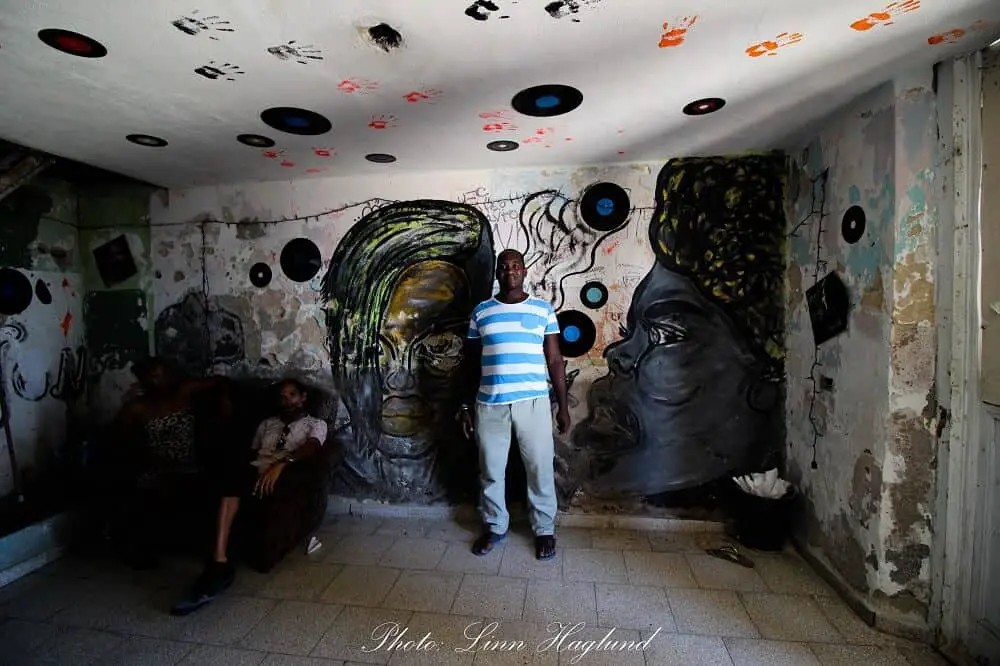
Face to face with a murderer
It was first when I was on my way to leave when Joel started talking to me. He had a crisp voice, mumbling in the paste of a high-speed train. I had to concentrate fully and repeat what he said a few times to make sure I heard him correctly.
Joel was standing there, honest and calm telling me how he had shot and killed three policemen. In Cuba. He was standing so close I could count every wrinkle in his face and feel his calm breath.
I was sure he could hear my heart beating heavily. Way too fast.
The world around us paused for a moment and I felt we were the only individuals in the room. Eight years in jail in Cuba, thinking he was going to be executed was why he seemed so much older than he was.
“How did that happen?” I finally asked.
I was passed the first instant moment where I thought about grabbing my bag from the other side of the room and run as fast as I could out the door. Or just run without my bag.
After all, I was in some stranger’s house in Havana, Cuba. I was traveling solo and no one even knew I was there. And I was standing face to face with a police murderer.
Joel told me the whole story of how the police had started to shoot at his car for no reason. It was full of bullet holes and the windows were shot to pieces. It was first later in his story I understood that Joel was inside the car when all this happened.
He was talking fast, and I had to make him rewind the story now and then to follow him. He seemed strained when he went through the details of what happened so many years ago.
Out of fear, he had laid down in the car and called his dad. The old man told him there was a gun in the glove department and asked him to use it.
You already know what happened next.
As a result, Joel was sentenced to death.
But he had been extremely lucky. In a country where the government is always right, where the police are corrupt and you have no chance to stand up to them, this exact day, when police shot at Joel’s car, there was a foreign journalist witnessing the whole scene. With a video camera.
This video was what saved Joel’s life. This video was the proof that Joel shot in self-defense. This video was used in court and got him to freedom after eight years of hard labor and poor food, locked up with criminals.
This is Joel’s story. His words. I have no other reference.
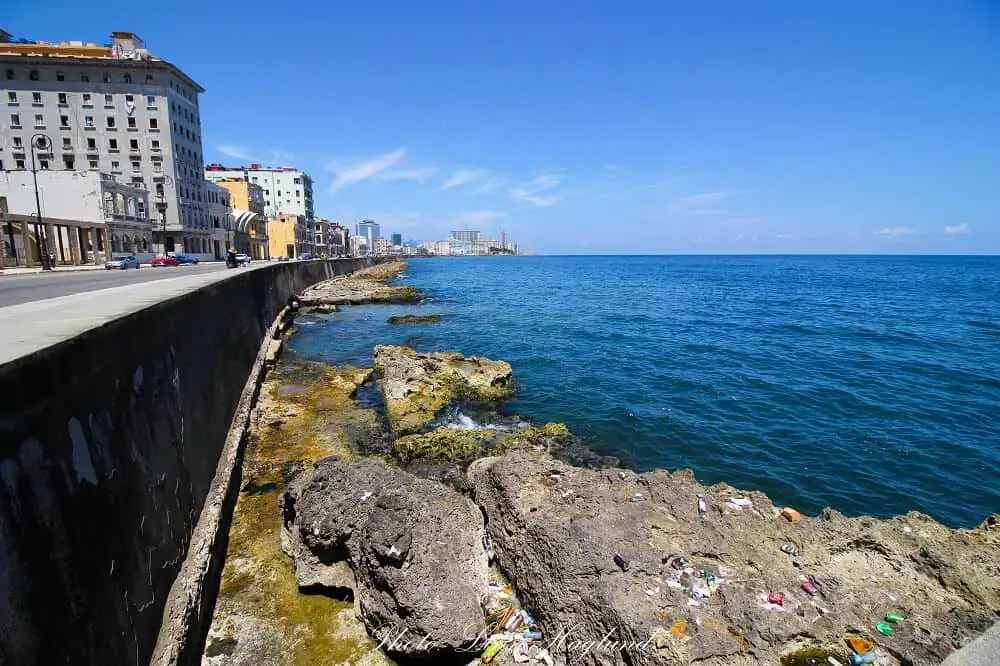
How to fact check the stories of the real Cuba
Except for Joel’s story, all other facts that they gave me have been cross-checked with other Cubans that were willing to talk to me during my two weeks trip. They all said the same things, whether they lived in Havana, Cienfuegos, Trinidad, Playa Larga, Viñales or in between.
For weeks after my return, I have been searching for any evidence of Joel’s story on the internet. It is hard to say if it would ever reach the news. I find it hard to find any news from Cuba in general. What I do find information on, though, is that there is death penalty in Cuba. You can get the death penalty for murder, threat of murder, and a few other serious crimes. The last recorded execution was in 2003.
Further, Joel is 52. He didn’t tell me when this happened. According to Wikipedia, all remaining death sentences were commuted in 2010, and no new ones have been given after that. This means it must have been before 2010. I also don’t know if the journalist that filmed was really a journalist. I find it strange that a foreign journalist doesn’t publish a story like this. Unless the Cuban government made him.
I don’t know if his story is true. But what I do know is that this man made an immense impact on me. I also know that there are thousands of Cuban stories that are never told.
What are your thoughts on Cuban life? Do you have other experiences from local meetings in Cuba? Feel free to share in the comments.
Sidenote: Joel and Ana are not their real names. I changed them to protect them while they talked openly about things that other Cubans are too scared to talk about. Both of them, as well as Anas uncle, encouraged me to take photos and notes and were eager for me to tell their story to the public.
Read Next: Unique things to do in Cuba
Pin it for later!
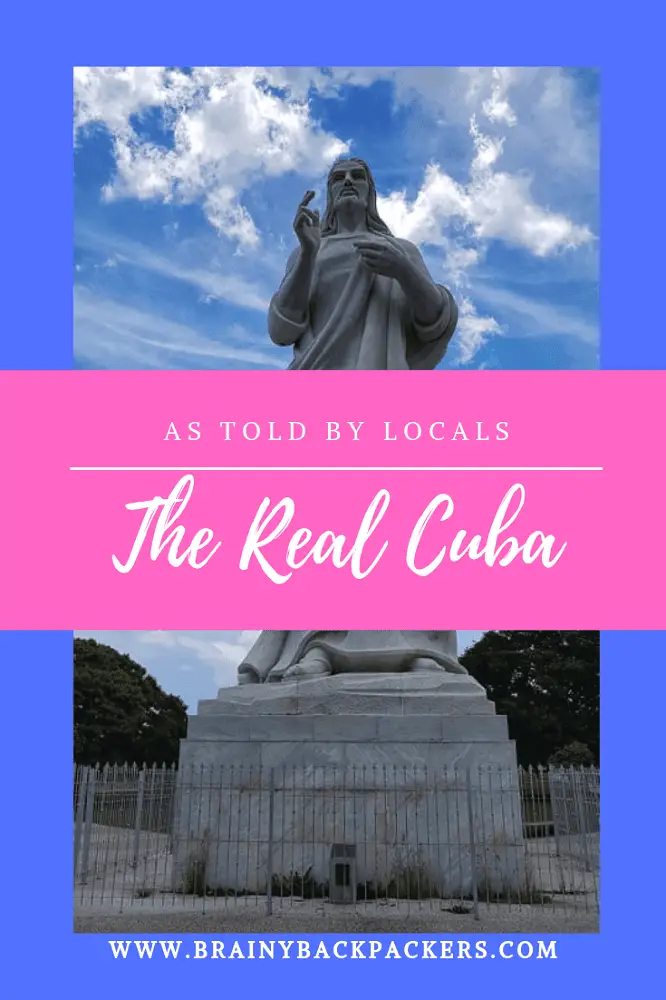

Totally loved your post. Very different and enjoyed your story-telling style of writing.
Thank you so much, Nabiha! It is totally new for me to write these kinds of posts, but with the positive feedback, I will try to add a few more of them in the future:)
What an interesting post with such a different perspective on traveling to Cuba! I really enjoyed hearing about the life in Cuba from a local. Its really sad how they struggle to make a living, I only hope that can change one day.
Thank you Vanessa! It is important to get out the voice of Cubans to the world as they have it difficult to do it themselves. I agree, I hope it will change one day. Unfortunately, not many Cubans that I spoke to were positive about that.
I had a lot of similar conversations when we visited Cuba a few years ago. A lot of tourists these days make it out to seem like Disneyworld but the reality for Cubans is so different. Thank you for sharing your experience!
Meredith
The Longest Weekend
Thank you Meredith! It is sad when tourists do that. Especially when local people are suffering as they do. I think it is important to share the beautiful sides of Cuba to attract more tourists there, but at the same time make sure they are informed about the struggles so they can do the right choices and support the people while they travel and not only spend their tourist money on government-owned businesses.